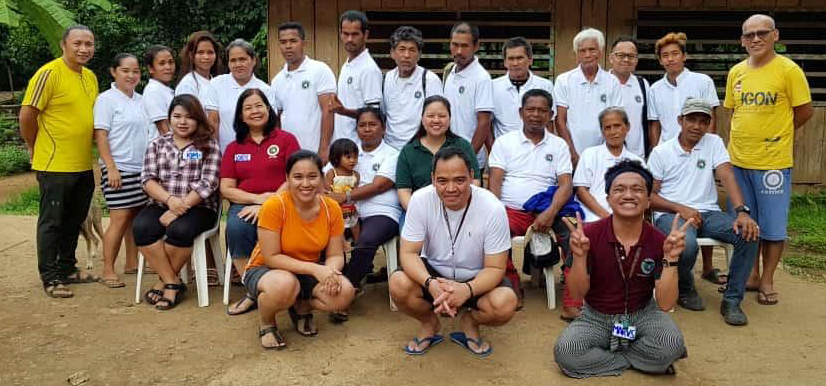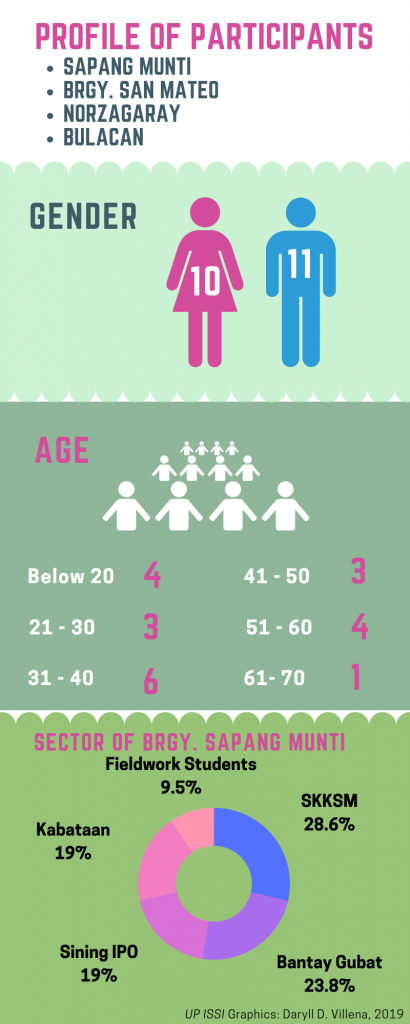Mae Fah Luang Foundation (MFLF) “under Royal Patronage aims to develop communities, society, environment and cultures following the work of Her Royal Highness the Princess Mother in order to create happiness, sustainability, and stability.” Its mission includes (1) to catalyze the growth of sustainable economic, social, cultural and environmental development by providing integrated development cooperation, consultation, and training; and (2) to establish the Foundation’s approach as Thailand’s principal development model (www.maefahluang.org).
In ensuring sustainability of their programs, MFLF recognizes the need for sense of ownership by the community people and incentive for development. They have the triple bottom line of economic stability, social cohesion, and environmental well-being.
One of the flagship programs of the MFLF is the Doi Tung Development Project, which is a “story of human transformation,” such that the approach to development is “helping people to help themselves.” The decades-long intervention comprises of three phases: Survival – Sufficiency – Sustainability.
From an unproductive land (which later also became an opium field) and a community where social services were largely inaccessible, Doi Tung (meaning “flag mountain”) flourished into a developed area where innovation and culture thrive. Following a value-adding approach, the physical and natural resources in the communities are maximized, such that the products and services move up the value chain. Four main business units are now operational under the Doi Tung brand: agro-forestry (coffee being the major product), cottage industries, horticulture, and tourism.
“The real products are the people who are empowered.” The experience of the Foundation in community-based enterprises shows that when people are given opportunities, their potentials are realized.

The case of the Doi Tung Development Project now serves as one of the inspirations for the ongoing community-based enterprise advocacy project in Sapang Munti, Norzagaray, Bulacan under the Communities of Practice for Entrepreneurship (COPE) program of the Training and Entrepreneurship Education Division. After the initial community integration in coordination with Samahan ng Kababaihan para sa Kaunlaran at Kinabukasan ng Sapang Munti (SKKKSM), the TEED team has conducted the introductory module on entrepreneurship. A gamification approach was used as this served as “break-in” for entrep learning in the community; thus, the Business Management Game.

In the pipeline for this year is the module on enterprise development and marketing management. The succeeding modules will include the functional areas of operations/production, organizational management, and finance.
The COPE program hopes to develop a culture of entrepreneurship among community members. As in the case of Doi Tung, the empowerment of the people of Sapang Munti would mean the ownership of their circumstances, resources and successes alike.
Disclaimer: The views expressed herein or in any article in the UP ISSI website are those of the authors and do not necessarily reflect the policies or opinions of UP ISSI nor the views of the University of the Philippines. Regarding Accuracy of Information and Usage of Data: Visitors and users of the UP ISSI website are advised that information contained within the website is assumed to be accurate. However, errors can occur even with computer-generated information. UP ISSI makes no representation regarding the completeness, accuracy, or timeliness of such information and data, or that such information and data will be error-free. Visitors are encouraged to review the official version of all documents on which they plan to rely on.